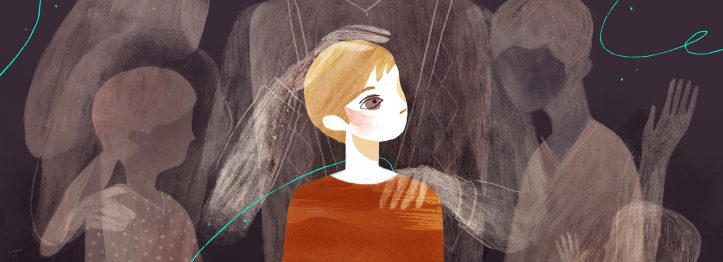What is Schizophrenia? Schizophrenia is a long-term mental illness that effects a person of behaviors and thought patterns. In its most extreme form, schizophrenia can lead to the total loss of a person’s ability to perceive reality. The various classifications and forms of schizophrenia have varied greatly over time.
Schizophrenia, which affects about one percent of the population, is a long-term mental illness that affects a person’s thought and actions. Schizophrenia, like Alzheimer’s disease, is an unpredictable degeneration of the brain. Schizophrenia can begin in childhood or adulthood. It can last for decades, or maybe never be cured. Some forms of schizophrenia are so severe that they require months or even years of treatment, while others may only require a few weeks or days. Schizophrenia can affect people from all cultures, income levels, and ages.

Schizophrenia can be difficult to diagnose because the symptoms often mirror those of other disorders. Because Schizophrenia is not an officially recognized disorder, there are no laboratory tests available to confirm the diagnosis. The lack of medical testing has made the process of diagnosing Schizophrenia a challenge for many people.
Schizophrenia can occur in people of any age but is most common in people of Schizophrenia disorder, which is a long-term mental health condition. Schizophrenia can begin to show symptoms in the early stages of adulthood, but often does not become clear until later in life. This condition is known as “flares”. When the flares go away, they are followed by a recurrence of symptoms within a few weeks to several months.
People with Schizophrenia experience hallucinations, delusions, and disorganized thinking patterns. Most people with schizophrenia experience one or two of these symptoms: hallucinations that cause the person to believe they are seeing or hearing things that are not there; delusions that cause the person to have problems with their reality; and disorganized thought patterns that make it difficult to understand what is actually going on.
Schizophrenia cannot be cured but can be treated to improve the quality of life of the patient and to reduce the symptoms of the disorder. The first step in treating schizophrenia is to gain a complete understanding of the illness and how it affects the patient. It is also important to realize that being diagnosed with a psychotic disorder does not mean you have been diagnosed with a schizophrenia disorder. A person with a psychotic disorder can have a normal and healthy life. Schizophrenia symptoms include but are not limited to: hallucinations; hearing, speaking, and writing problems; depression; irritability; emotional disturbances; behavioral problems; and, in some extreme cases, even death.
The reason why patients suffer from hallucinations, delusions, or false beliefs is because of a disconnection between their reality and their distorted perceptions of reality. This disconnection can be caused by many factors, such as a traumatic life experience (such as abuse or neglect), a medical condition (such as a brain tumor or head injury), the body’s reaction to an outside stimulus (such as a needle prick or exposure to a toxic chemical), and a deficiency of essential chemicals in the brain (such as a lack of serotonin or dopamine).
Schizophrenia can be categorized as either a psychological disorder or a physical disorder. The physical aspect of the disease can include several different symptoms observed in the body of a person with schizophrenia. These symptoms range from delusions and hallucinations to severe muscle spasms, muscle weakness, loss of balance, speech problems, urinary or bowel incontinence, and severe facial and vocal abnormalities. The psychological symptoms observed in patients with schizophrenia range from a feeling of false reality to significant distortions in a patient’s sense of reality.